Take a photo of a barcode or cover
The 50 Best Sci-Fi Books of All Time (Esquire, 2022) - NEW VERSION
89 participants (50 books)
Overview
Since time immemorial, mankind has been looking up at the stars and dreaming, but it was only centuries ago that we started turning those dreams into fiction. And what remarkable dreams they are—dreams of distant worlds, unearthly creatures, parallel universes, artificial intelligence, and so much more. Today, we call those dreams science fiction.
Science fiction’s earliest inklings began in the mid-1600s, when Johannes Kepler and Francis Godwin wrote pioneering stories about voyages to the moon. Some scholars argue that science fiction as we now understand it was truly born in 1818, when Mary Shelley published Frankenstein, the first novel of its kind whose events are explained by science, not mysticism or miracles. Now, two centuries later, sci-fi is a sprawling and lucrative multimedia genre with countless sub-genres, such as dystopian fiction, post-apocalyptic fiction, and climate fiction, just to name a few. It’s also remarkably porous, allowing for some overlap with genres like fantasy and horror.
Sci-fi brings out the best in our imaginations and evokes a sense of wonder, but it also inspires a spirit of questioning. Through the enduring themes of sci-fi, we can examine the zeitgeist’s cultural context and ethical questions. Our favorite works in the genre make good on this promise, meditating on everything from identity to oppression to morality. As the Nobel Prize-winning novelist Doris Lessing said, "Science fiction is some of the best social fiction of our time.”
Choosing the fifty best science fiction books of all time wasn’t easy, so to get the job done, we had to establish some guardrails. Though we assessed single installments as representatives of their series, we limited the list to one book per author. We also emphasized books that brought something new and innovative to the genre; to borrow a great sci-fi turn of phrase, books that “boldly go where no one has gone before.”
Now, in ranked order, here are the best science fiction books of all time.
All notes on the books are from the article:
https://www.esquire.com/entertainment/books/g39358054/best-sci-fi-books/
All notes on the books are from the article:
https://www.esquire.com/entertainment/books/g39358054/best-sci-fi-books/
The 50 Best Sci-Fi Books of All Time (Esquire, 2022) - NEW VERSION
89 participants (50 books)
Overview
Since time immemorial, mankind has been looking up at the stars and dreaming, but it was only centuries ago that we started turning those dreams into fiction. And what remarkable dreams they are—dreams of distant worlds, unearthly creatures, parallel universes, artificial intelligence, and so much more. Today, we call those dreams science fiction.
Science fiction’s earliest inklings began in the mid-1600s, when Johannes Kepler and Francis Godwin wrote pioneering stories about voyages to the moon. Some scholars argue that science fiction as we now understand it was truly born in 1818, when Mary Shelley published Frankenstein, the first novel of its kind whose events are explained by science, not mysticism or miracles. Now, two centuries later, sci-fi is a sprawling and lucrative multimedia genre with countless sub-genres, such as dystopian fiction, post-apocalyptic fiction, and climate fiction, just to name a few. It’s also remarkably porous, allowing for some overlap with genres like fantasy and horror.
Sci-fi brings out the best in our imaginations and evokes a sense of wonder, but it also inspires a spirit of questioning. Through the enduring themes of sci-fi, we can examine the zeitgeist’s cultural context and ethical questions. Our favorite works in the genre make good on this promise, meditating on everything from identity to oppression to morality. As the Nobel Prize-winning novelist Doris Lessing said, "Science fiction is some of the best social fiction of our time.”
Choosing the fifty best science fiction books of all time wasn’t easy, so to get the job done, we had to establish some guardrails. Though we assessed single installments as representatives of their series, we limited the list to one book per author. We also emphasized books that brought something new and innovative to the genre; to borrow a great sci-fi turn of phrase, books that “boldly go where no one has gone before.”
Now, in ranked order, here are the best science fiction books of all time.
All notes on the books are from the article:
https://www.esquire.com/entertainment/books/g39358054/best-sci-fi-books/
All notes on the books are from the article:
https://www.esquire.com/entertainment/books/g39358054/best-sci-fi-books/
Challenge Books

The Time Machine
H.G. Wells
38. Published way back in 1895, The Time Machine was one small step for H.G. Wells, but one giant leap for science fiction. The novel popularized the concept of time travel by vehicle, lighting the way for everything from Back to the Future to Doctor Who. The Time Machine is the story of the Traveler’s journey 800,000 years into the future, where he discovers that mankind has evolved into two races: the ethereal Eloi and the predatory Morlocks. Through the Traveler’s exciting, nail-biting adventure, we see an entire generation’s fin-de-siècle anxieties about industrialization and the future of humanity. This short, seminal book is a must-read for any sci-fi fan.
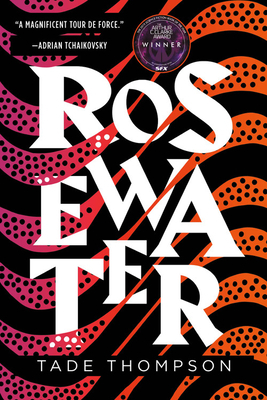
Rosewater
Tade Thompson
37. Tade Thompson’s award-winning Wormwood Trilogy opens in Nigeria circa 2066, where the town of Rosewater has formed around a mysterious alien biodome rumored to have extraordinary healing powers. Enter Kaaro, a government security officer known as a “sensitive”—essentially, a bioengineered race of psychics with access to an alien informational network called the xenosphere. When sensitives start dying off mysteriously, Kaaro embarks on a hardboiled detective mission, bringing the true nature of sensitives’ existence into the cold, hard light of day. A work of dazzling cyberpunk imagination and visionary Afrofuturism, Rosewater masterfully fuses a story of postcolonial trauma with a first contact narrative.
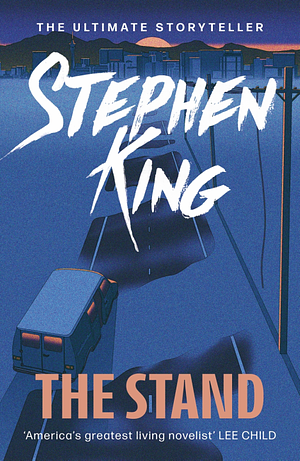
The Stand
Stephen King
36. Horror, fantasy, and science fiction converge in The Stand, a master storyteller’s doorstopper about the eternal struggle between good and evil. After a bioengineered influenza virus escapes from a government laboratory, mankind succumbs to the deadly pandemic in just weeks, leaving survivors scattered across the barren United States. Two communities coalesce around very different leaders: Mother Abagail, a benevolent holy woman seeking utopia, and Randall Flagg, the human personification of violence and chaos. As the communities fight to wipe one another out, King weaves an epic tale about theology, morality, and human nature. In the wake of our own pandemic, The Stand has only grown in resonance and prescience.
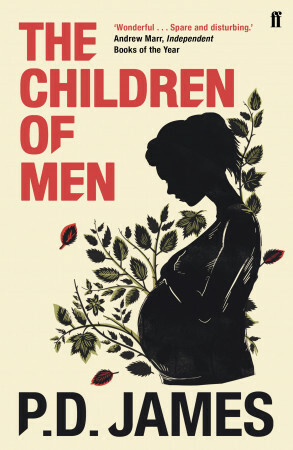
The Children of Men
P.D. James
35. Before it was a grim Alfonso Cuarón film, The Children of Men was a grim, remarkable novel. The year is 2021: with all men inexplicably sterile, no child has been born for 25 years, and the human race faces extinction. England is ruled by the Warden, a despotic leader who prizes the youngest generation above all others. Theo Faren, the Warden’s estranged cousin, sleepwalks through life as an Oxford historian until he receives a visit from a group of dissidents, whose company includes a pregnant woman. Packed with prescient insight about politics, power, and tyranny, The Children of Men will rattle you for years to come.
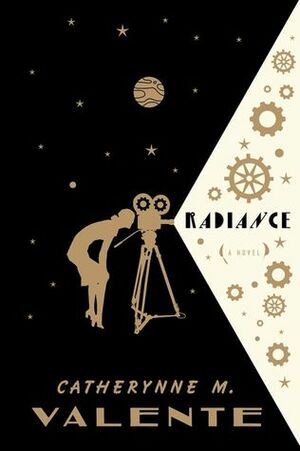
Radiance
Catherynne M. Valente
34. When documentary filmmaker Severin Unck fails to return from her latest project on Venus, so begins a metafictional odyssey into her life, work, and disappearance. Constructed in patchwork fashion from scripts, depositions, and interviews with people who knew Unck, Radiance ushers us into Valente’s pulpy alternate universe, where Hollywood is an interplanetary system with backlots on the moon, but cinema never progressed beyond silent black and white films, thanks to the Edison family’s tight grip on the patent process. Hopscotching through this kaleidoscopic universe of beauty, adventure, and artistry, Valente tells a moving story about why we tell stories at all.
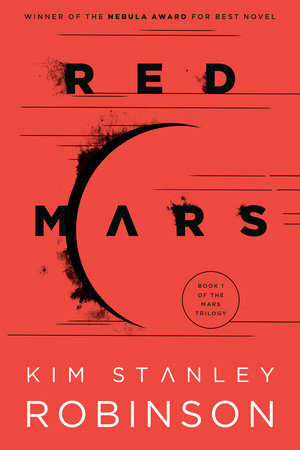
Red Mars
Kim Stanley Robinson
33. Plenty of writers have contemplated the colonization of Mars, but few have done it with such extraordinary granularity as Robinson, who dug in with gusto through his Mars Trilogy. Arthur C. Clarke himself called Red Mars “the best novel on the colonization of Mars that’s ever been written.” The novel takes place in 2026, when colonists fleeing an overpopulated Earth touch down on the red planet. Carefully selected and trained, they set about the task of terraforming hostile, sandswept Mars, but establishing a viable settlement will demand everything they have to give. Robinson looks at planetary colonization through every conceivable lens: politics, biology, ecology, medicine, psychology, and morality, just to name a few. The result is speculative fiction that feels astoundingly real.
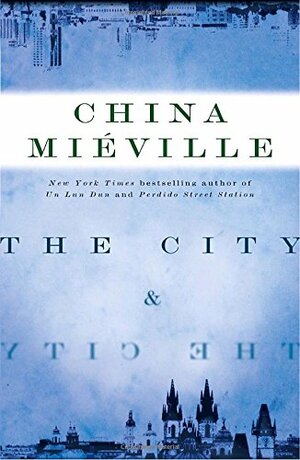
The City & the City
China Miéville
32. That this novel won a constellation of awards spanning science fiction, fantasy, and weird fiction is proof of Miéville’s gift for straddling genres. The City & The City is set in two fictional Eastern European cities occupying the same physical space; from birth, residents are trained to “unsee” the opposing city, under the threat of criminal penalties. When a murdered woman is found lying in the wastelands, Inspector Tyador Borlú of the Extreme Crime Squad is called to the scene, but the crime defies logic: this woman was murdered in one city, and her body was dumped in the other. Borlú’s investigation exposes startling secrets about this strange way of life, taking us on a noirish metaphysical journey through the doors of perception.
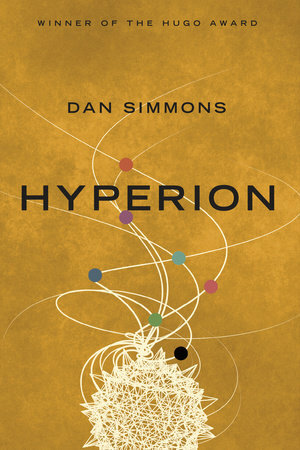
Hyperion
Dan Simmons
31. Inspired by Chaucer’s Canterbury Tales, Simmons’ Hyperion Cantos begins with this story of seven pilgrims sent on a potentially fatal mission to the Time Tombs of Hyperion. There, they hope to confront the Shrike, a cosmic being with the power to bend space and time. Throughout the journey, they share their stories of suffering under the Hegemony of Man, the intergalactic government that sold humanity out to a civilization of AIs. From aging in reverse to encounters with immortality, each story is a cerebral fable, rich in Lovecraftian terror, mythological import, and breathtaking worldbuilding.
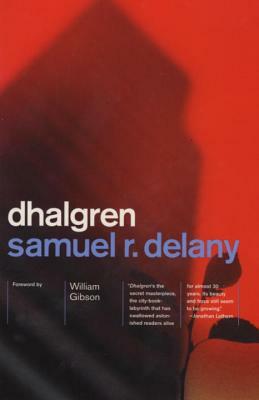
Dhalgren
Samuel R. Delany
30. Philip K. Dick once called Dhalgren “the worst trash I’ve ever read,” while William Gibson described Delany as “the most remarkable prose stylist to have emerged from the culture of American science fiction.” Read it yourself, and you can be the judge. This cult classic opens when a man without a name wanders into Bellona, a midwestern city razed by a space-time continuum-altering disaster. Strange phenomena abound: two moons burn in the night sky, time moves in loopy circles, and electronic signals can’t reach the city, cutting it off from the outside world. To borrow a phrase from our narrator, Dhalgren “has more to say than vocabulary and syntax can bear”; written in a circular structure, it’s a novel with multiple entry points, which will test your patience and bend your brain. Dense and psychedelic, packed with transgressive ideas about race, sex, and gender, it’s a work of singular vision, but not for the faint of heart.
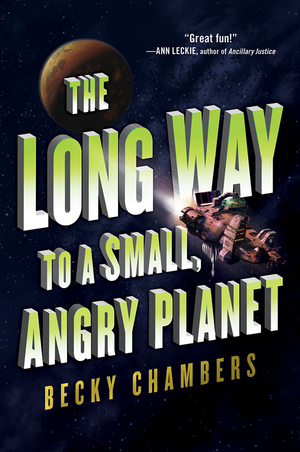
The Long Way to a Small, Angry Planet
Becky Chambers
29. The first volume in Chambers’s Wayfarers series is pure, rip-roaring fun—a space opera with a big, gooey heart. Running from her mysterious past on Mars, Rosemary Harper joins the multi-species crew of the Wayfarer, a spaceship that creates wormholes to connect distant trade routes. En route to their biggest job yet at the edge of the Galactic Commons, the eclectic crew has ample time to bond, and bond they do. Plot takes a back seat for the majority of this character-driven narrative as Rosemary learns deeply humane truths about what makes us human (or, rather, what makes us alien): identity, sexuality, race, tradition. Chambers proves that spacefaring needn’t be all about the destination. Sometimes, it’s about the journey.
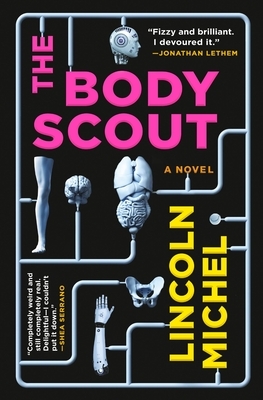
The Body Scout
Lincoln Michel
28. In Michel’s cyberpunk New York of the future, climate change and repeated pandemics have ravaged the city; meanwhile, cybernetic body modification is de rigeur, and Neanderthals roam the earth again. In this dystopian milieu, we meet Kobo, a down-on-his-luck baseball scout who recruits genetically engineered talent for Big Pharma-owned teams. JJ Zunz, Kobo’s adopted brother, is the souped-up superstar of the Monsanto Mets—but when Zunz drops dead on the field, Kobo smells foul play. Kobo’s transformation into an amateur sleuth sends him pin-balling through a web of corporate espionage, making for a breathlessly paced techno-thriller characterized by stunning, spiky world building.
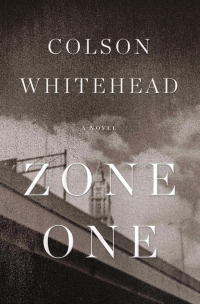
Zone One
Colson Whitehead
27. After a zombie pandemic decimates American life, separating humanity into the living and the living dead, who cleans up the wreckage? In Zone One, we meet the janitors of the undead: “sweepers” like Mark Spitz, who are tasked with taking out zombie stragglers to prepare Manhattan for resettlement. Inspired by the horror fiction of Stephen King and the science fiction of Isaac Asimov, Whitehead’s foray into zombieland delivers gallows humor and nightmarish gore in spades; at the same time, this post-apocalyptic elegy for the modern world elevates the genre to new heights.
